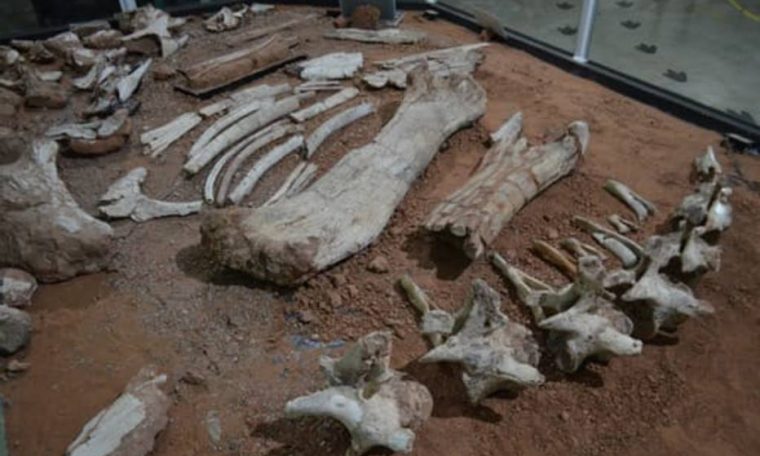
Using new detection techniques, researchers found that dinosaur fossils were found 24 years ago Candido RodriguesNot in Sao Paulo, Belong to a species of Titanosaurus, which is phenomenally developed Paleontology Brazil Before it was believed that the bones were similar to a dinosaur that lived inside Argentina. The new discovery has already allowed the renaming of the Jurassic giant, which was about 20 meters long.

The study was published in the 29th English journal Historical biology, Was developed by researchers Julian Silva Jr. and Max Langer USP By the University of Ribeiro Prato (São Paulo), Fabiano Vidori, associate of the Museum of Monte Alto, Thiago Marinho, Federal University of Triangulo Mineiro, and Argentine researchers Augustine Martinley and Martin Hechlenner. Using new data and techniques recently revealed, he concluded that Brazilian dinosaurs were not ‘related’ to other Argentine dinos, as initially assumed.
At that time, the animal was recognized as a new species among Aeolosaurus, but a genus already known in Argentina. “Analyzing the caudal vertebrate structures of the Kindo Rodrigues dinosaurs, we found that they are different from other dinosaurs in their group, and these characteristics served to establish a diagnosis to propose a new genus, Silva Jr. , The lead author explained. Now the study was published. Dinosaurs got a new name for ‘baptism’: Arudritam maximIn honor of Professor Antonio Celso de Aruda Campos, the coordinator of the excavations that took place between 1997 and 98, who died in 2015.

According to Julian, Aruditatan was 19 to 22 meters tall, considered to be the third largest dinosaur in the country. The large long neck and tail feature sarupodes belonged to a group of herbivorous dinosaurs. In addition to its large size, it stands out for being a light but resistant skeleton to support the weight of a dinosaur animal. Palaeontologist Fabiano Iori states that Arudateton lived about 85 million years ago, in the Cretaceous period, from the same time hunters lived with dinosaurs, crocodiles, turtles and molluscs.

According to Sandra Tavarez, director of the Monte Alto Paleontology Museum, this study expands knowledge about the fossils of the titanosaur living in the area. The fossils of Arrudatitan Maximus, in addition to their scientific significance, are the most appreciated pieces in the museum’s collection due to the size of the bones. “The fossils will soon be able to be seen by the general public when the museum reopens, soon after the coronovirus epidemic stabilizes.”
Hunter

The fossils of the species are now recognized as unprecedented Brazil Found by fruit trader Admir Fré and his nephew Luiz Augusto dos Santos Fré, then at the age of 12, a resident of Cadido Rodrigues, who, during his spare time, turned into a dinosaur hunter. The pair had a habit of visiting area sites in search of fossils, and in one of these hunts, they found very large bones and came in contact with the Museum of Monte Alto.
Iori reports that excavation has revealed a bacterial rarity. “We started digging and fossils kept appearing. We found parts of the bones of the vertebrae, ribs, pelvis and limbs, many of which were still articulated, especially the bones of the femur region and the beginning of the tail, ”he said. The animal was initially named Aerosaurus maximus, as it was believed that the great herbivores belonged to the dinosaurs of this species that lived Patagonia Argentina